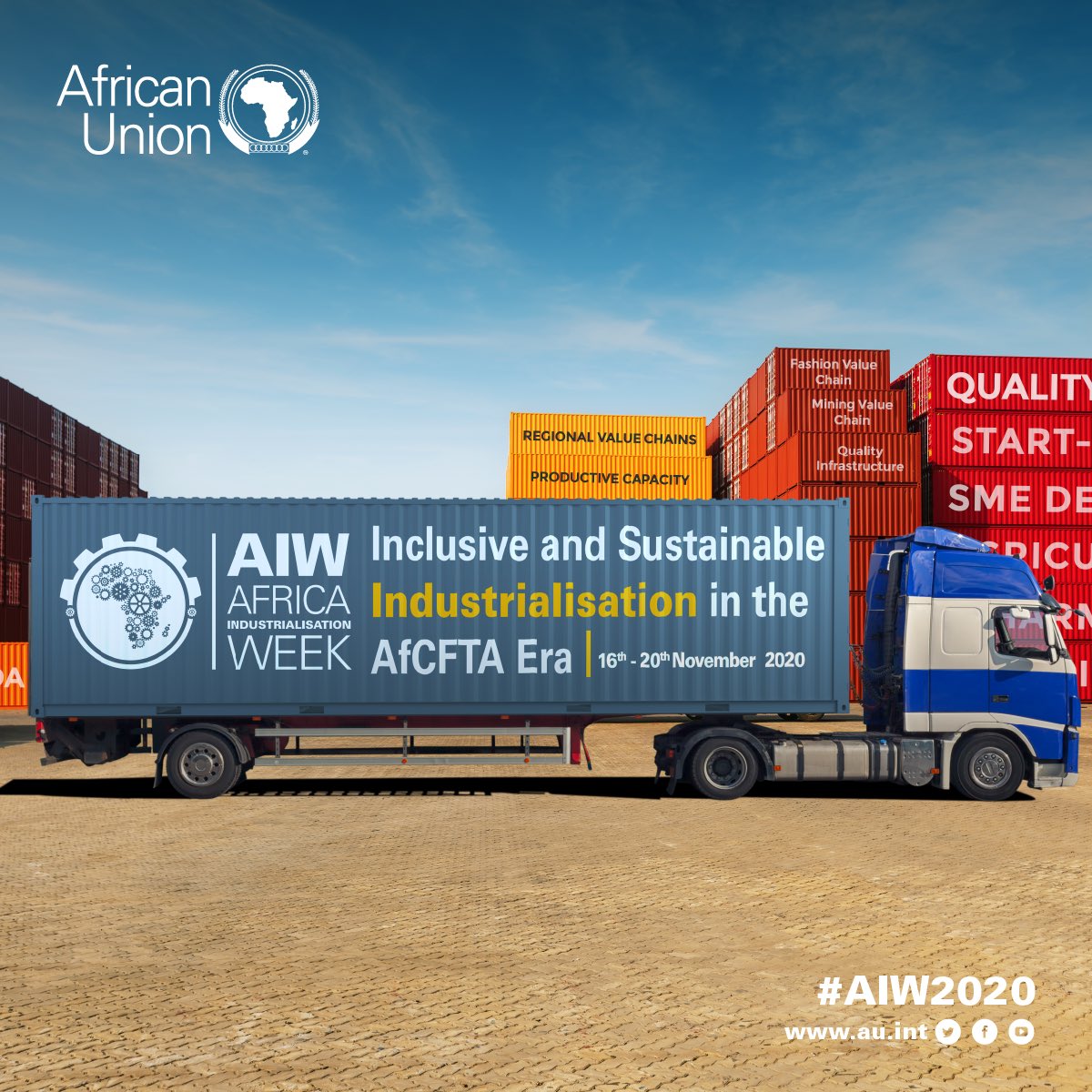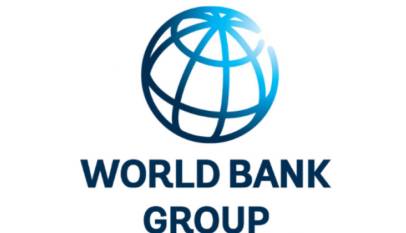At 2020 Africa Industrialization Week, stakeholders reechoed the industry-trade nexus
Due to the disruption caused by the COVID-19 pandemic, the annual Africa Industrialization Week (AIW 2020), under the theme: “Inclusive and Sustainable Industrialisation in the AfCFTA Era,” has Monday kicked-off virtually. This year’s commemoration was coming barely a month to the commencement of trade under the African Continental Free Trade Area (AfCFTA).

The advent of the pandemic had disrupted business and commercial activities across the globe with negative effects on Africa’s vulnerable economies; it also delayed the commencement of trade under the AfCFTA, a liberal trading regime that seeks to create an over USD$3 trillion-worth single African market, which was initially billed for July 1, 2020 but had now been postponed to January 1, 2021. Thus, there has never been a better time for Africa’s industrialization than now when the AfCFTA is about to become a reality.
While addressing the opening ceremony of AIW 2020, Mr Wamkele Mene, the secretary general of the AfCFTA secretariat, said even as African countries were at different stages of industrialization and development, they had all shown remarkable commitment towards the AfCFTA Agreement, with 54 of the 55 African countries having already signed it adding that the AfCFTA was also the fastest-ratified trade agreement in the history of the African Union.
Mene, who gave the credit of the success recorded by the AfCFTA to the unwavering commitment, dedication and leadership shown by His Excellency Issoufou Mahamadou, President of the Republic of Niger and Champion of the AfCFTA, added that the Agreement provides an opportunity for African countries to jumpstart their industrialization process.
He however, said the challenge before the continent, as it prepares to begin implementation of the AFCFTA Agreement, was that of ensuring that countries who do not have the requisite manufacturing and productive capacity were not marginalized by those countries with much more advanced industrial-base; who are currently in a better position to take advantage of the market access opportunities presented by the AfCFTA.
“The challenge before us is to make sure that as we implement the Agreement, these differentials do not become permanent; the challenge is for us to work collectively to ensure that in the development of the regional value chains, there is a space and opportunity for all countries on the African continent – not only for countries that are already relatively industrialized. It means we have to redouble our efforts in working with countries that today may not have the manufacturing and productive capacity. We have to project 20 to 30 years from now and envision where we will like to see Africa’s industrial development trajectory,” Mene urged.
Mene applauded African countries such as Lesotho which he said had become a part of the auto value chain and created over 200,000 jobs, even as it didn’t have a auto value chain strategy. “This is an example of what we can do over sustained period of time, with intensified efforts to establish these value chains, we can work together to device an action plan for implementation of all our industrial development policies such as the Third Industrial Development Decade for Africa (IDDA3), amongst other industrial policies.”
The AfCFTA chief said it was time for Africa to dismantle what he termed as its ‘colonial economic model’ which it inherited from the days of colonialism and sustained over too long a period of time, through continues export of raw materials to erstwhile colonial powers – against exporting value added products. “Therefore, we have a challenge to dismantle this colonial economic model by expediting Africa’s industrialization and ensuring that we are on a trajectory for production of value added goods that will lead us to a more diversified economies in our regions and of course in our individual countries.”
Mr Paulo Gomez, the co-chair of AfroChampions initiative’s executive committee said the implementation of the AfCFTA required certain enablers such as energy adding that consequently, the African private sector was partnering with the public sector through the African Union and its Member States to mobilize USD1 trillion to invest in energy, roads, as well as smart and green infrastructure which, he said, were essential enablers of trade and industrialization.
“We shouldn’t forget the fact that even if we have a vision to accelerate trade integration, we are penalized by the way our countries have been organized in a way that one can say goes against the flow of trade. History has shown us that one of the major impediments for regional integration is the way our countries have been assembled in small pieces. We have the biggest number of landlocked countries as a continent, which is responsible for the challenge traders faced in moving from one point to another. So, there is a need for a lot of resources to be injected into the whole model of delivery, to bring out the necessary infrastructure we need to accelerate trade and also industrialization,” he urged.
Mr Gomez however said Africa will not ‘mimic’ the industrialization path of the current industrialized regions of the world; rather, the continent would as a substitute adapt smarter and greener industrialization strategies, adding that the African continent should leverage digital revolution and green industrialization, in accordance with the Paris Agreement.
“So, we shouldn’t industrialise the way others had industrialized and that is why I think the message we need to send to the rest of the world is that: a partnership is needed for investment in green technology; we need to invest in renewable energy. We have some flagship projects that the AU has put forward; one of them is the Grand Inga Dam Hydroelectric Project, which may appear to be impossible but is possible with technologies of today. This could be one enabler investment that will accelerate the industrialization and transformation of some of our minerals to allow for access to cheap energy because at the end of the day you can’t industrialize if you don’t have cheap energy.”
Mr Li Young, the director general of United Nations Industrial Development Organization (UNIDO), in his address, applauded African leaders for their resilience and commitment towards the implementation of the AfCFTA Agreement, against the backdrop of the daunting challenges posed by the COVID-19 pandemic. He expressed UNIDO’s conviction of the role of industrialization and regional integration as primary enablers of Africa’s productive transformation.
“It is encouraging that African leaders are continuing the endeavor to sustain the spirit and the good intentions to reinforce the industry and trade nexus, a critical link towards maximizing the potentials of the AfCFTA. UNIDO is convinced that industrialization and integration are great enablers of Africa’s productive transformation. The importance of Africa’s industrialization has been further highlighted by the COVID-19 pandemic which has not only affected the health sector but also manufacturing, tourism, trade and services as well as the agricultural sector,” said Mr Young.
In addition to the AfCFTA, he said, there were policies of the AU that were capable of leapfrogging Africa’s industrialization drive such as the Digital Transformation Strategy for Africa (2020 – 2030), which he described as a clear indication of African leaders’ commitment to take advantage of the Fourth Industrial Revolution (FIR). He however said, Africa needed to address challenges such as digital infrastructure, skills development based on industry needs, provision of an enabling environment for private sector development as well as support to Micro, Small and Medium Enterprises (MSMEs).
















